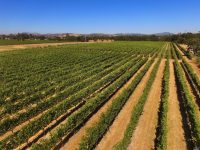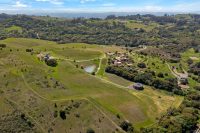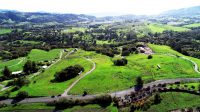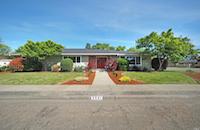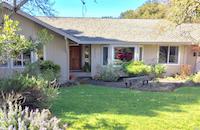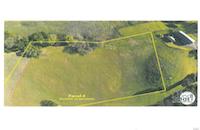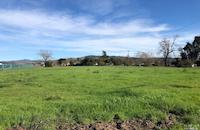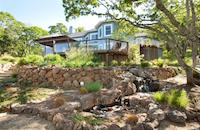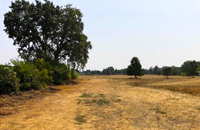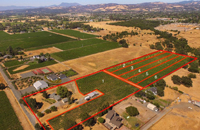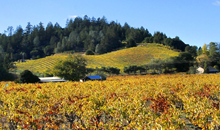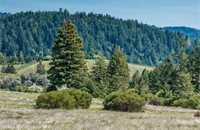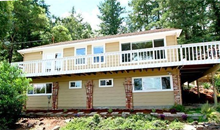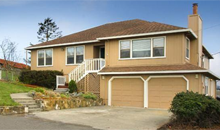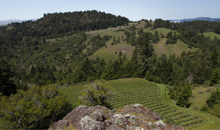Economics
You can make more money selling wine than selling grapes – but you also take a great deal more risk. Wineries have success rates similar to restaruants and it is not a venture to be taken on lightly. There are excellent margins in a well run winery operation, but you have to be able to move the wine – and that is often the issue.
Custom Crush
Many people coming to me believe that you need to own a vineyard and a winery building to be in the wine business and that is not true. Most wineries do not own any vineyards and many wineries don’t own the facility they make wine in. A majority of the wine made in Napa and Sonoma Counties is made from fruit bought from independent growers – like me. And many young wineries make their wine in “Custom Crush” facilities where a larger winery is shared by several smaller winemakers and brands.
The advantage of this approach is that it reduces capital outlay significantly and it allows you to focus on the aspects of winery operation that are unique – supply and distribution – and saves you from dealing with growing of grapes and dealing with infrastructure and employees. It also gives you more flexibility in the early stages of development.
It typcially costs $30 to $40 per case to make wine at a custom crush facility – and you pay for the barrels (or “oak” as it’s referred to), grapes, bottles, corks and boxes. The $30 to $40 gets you access to the crush pad, tanks, pumps, labor and usually about 12 months of aging. If you want a fancy wine maker to make your wine as well, that will cost more – how much depends on how fancy a wine maker you select.
A Winery
The final step is to actually own a winery. Wineries are expensive to build and expensive to buy. Properties with wineries for sale in Sonoma County are typically asking a $1 million to $10 million premium for the property because of the winery.
Permitting
There are several levesl of permitting in owning a wine label. First, you have to have a license from both the Federal Government (TTB) and from the State of California (ABC) to sell wine. Most local lawyers can handle this for you and there are idenpendent professionals that handle the entire permitting process for you as well. It’s time consuming, so start early. There are two different kinds of permits you can get. The first is as a “wholesaler” or a 20/17 which allows you sell wine but not to make wine (or to pour tastes of wine for the general public). The second is a “winery” or 02 permit. This allows you to make and sell wine and to pour tastes to the public in a licensed tasting room. It is important to note that neither of these permits is about a physical winery. An 02 permit requires that you be making wine somewhere, but it can be a custom crush facility.
Beyond, the license to make or sell wine, Sonoma County also gets into the act whenever you want to use a particular space. They need to approve, usually via a Special Use Permit, the use of any space for the making or selling of wine. This is where most of the trouble starts. The TTB and ABC will license anyone anywhere as long as you go through the process and aren’t a felon (more or less). They don’t care if your building is a rat trap or a state of the art facility. The County on the other hand is all about complying with building codes and not disturbing the character of the neighborhood. Additional traffic created by the use of a building as a winery or a tasting room is often a stumbling block for getting a Use Permit for a particular facility. If it is too far off a main road (as is often the case for a vineyard property that is private and quiet) the County may severly limit the use of the facility in additon to requiring the building be brought up to current code. The process of obtaining a Special Use Permit for a building is long, expensive and often involves public review. There are a few professionals that specialize in helping people through this process as well.
